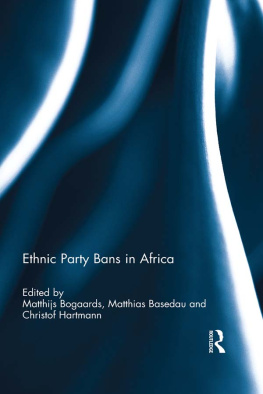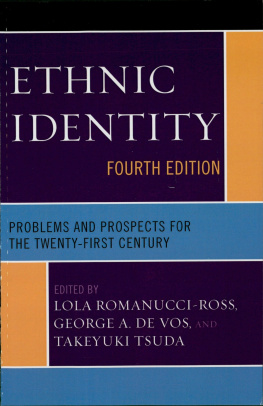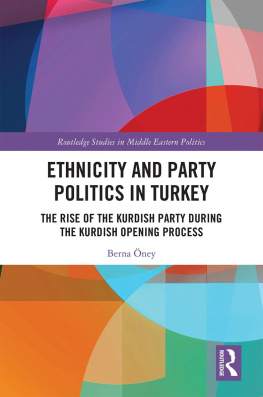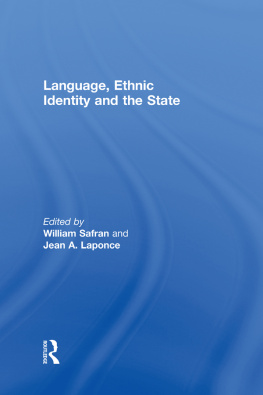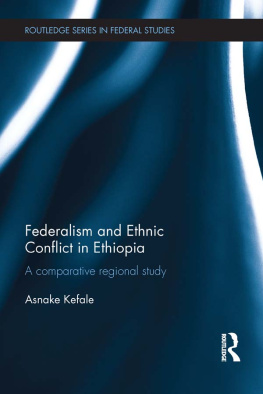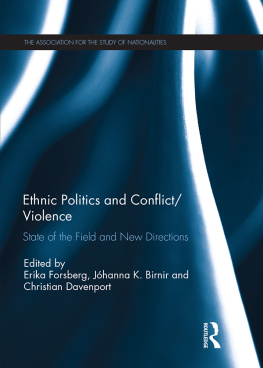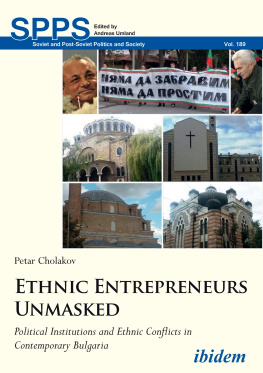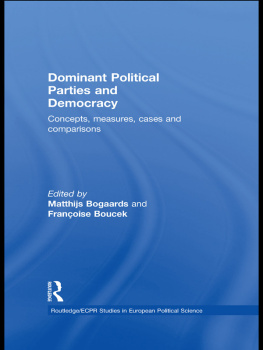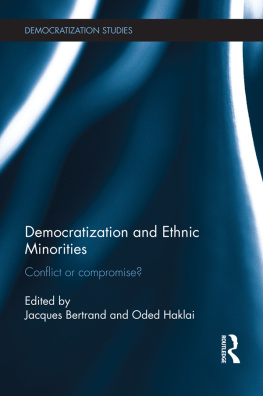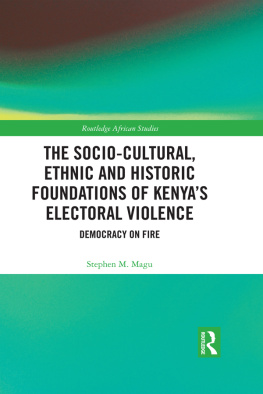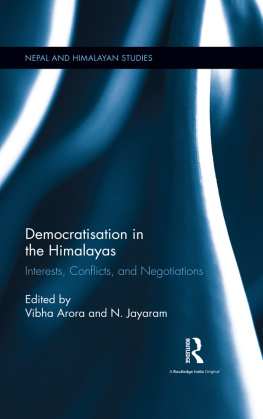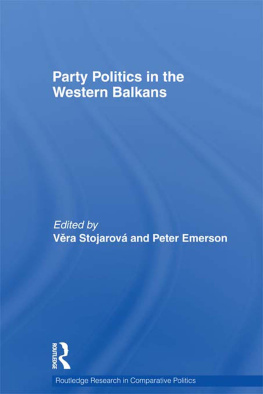Ethnic Party Bans in Africa
In Sub-Saharan Africa, the spread of democracy since the 1990s has been accompanied by the proliferation of bans on ethnic political parties. A majority of constitutions in the region explicitly prohibit political parties to organize on the basis of race, ethnicity, religion, region and other socio-cultural attributes. More than a hundred political parties have been dissolved, suspended or denied registration on these grounds. This book documents the experience with ethnic party bans in Africa, traces its origins, examines its record, and answers the question whether ethnic party bans are an effective and legitimate instrument in the prevention of ethnic conflict.
This book was published as a special issue of Democratization.
Matthijs Bogaards is professor of Political Science at Jacobs University, Bremen, Germany. In 2001 he was awarded the Frank Cass prize for the best article in volume 7 of Democratization (2000) and has published an article entitled Where to Draw the Line? From Degree to Dichotomy in Measures of Democracy in the same journal (2012). His primary research interests include democratization, electoral systems and divided societies.
Matthias Basedau is head of the research programme at the GIGA German Institute of Global and Area Studies and deputy of the director at the GIGA Institute of African Affairs, Hamburg, Germany. He has published numerous articles related to African politics, including Do Religious Factors impact armed conflict? Evidence from Sub-Saharan Africa, in Terrorism and Political Violence (2011, with Georg Strver, Johannes Vllers and Tim Wegenast).
Christof Hartmann is professor of Political Science at University Duisburg-Essen, Germany. His key research areas include reform of political institutions, democratization, and regional integration in Sub-Saharan Africa. He has also advised on behalf of various political foundations and electoral commissions.
Ethnic Party Bans in Africa
Edited by
Matthijs Bogaards, Matthias Basedau and Christof Hartmann
First published 2013
by Routledge
2 Park Square, Milton Park, Abingdon, Oxon, OX14 4RN
Simultaneously published in the USA and Canada
by Routledge
711 Third Avenue, New York, NY 10017
Routledge is an imprint of the Taylor & Francis Group, an informa business
2013 Taylor & Francis
This book is a reproduction of Democratization, vol. 17, issue 4. The Publisher requests to those authors who may be citing this book to state, also, the bibliographical details of the special issue on which the book was based.
All rights reserved. No part of this book may be reprinted or reproduced or utilised in any form or by any electronic, mechanical, or other means, now known or hereafter invented, including photocopying and recording, or in any information storage or retrieval system, without permission in writing from the publishers.
Trademark notice: Product or corporate names may be trademarks or registered trademarks, and are used only for identification and explanation without intent to infringe.
British Library Cataloguing in Publication Data
A catalogue record for this book is available from the British Library
ISBN13: 978-0-415-62363-6
Typeset in Times New Roman
by Taylor & Francis Books
Publisher's Note
The publisher would like to make readers aware that the chapters in this book may be referred to as articles as they are identical to the articles published in the special issue. The publisher accepts responsibility for any inconsistencies that may have arisen in the course of preparing this volume for print.
Contents
Matthijs Bogaards, Matthias Basedau and Christof Hartmann
Anika Moroff
Christof Hartmann and Jrg Kemmerzell
Anika Moroff and Matthias Basedau
Jrg Kemmerzell
Peter Niesen
Matthijs Bogaards
Anika Moroff
Christof Hartmann
The chapters in this book were originally published in the Democratization, volume 17, issue 4 (August 2010). When citing this material, please use the original page numbering for each article, as follows:
Chapter 1
Ethnic party bans in Africa: an introduction
Matthijs Bogaards, Matthias Basedau and Christof Hartmann
Democratization, volume 17, issue 4 (August 2010) pp. 599617
Chapter 2
Party bans in Africa an empirical overview
Anika Moroff
Democratization, volume 17, issue 4 (August 2010) pp. 618641
Chapter 3
Understanding variations in party bans in Africa
Christof Hartmann and Jrg Kemmerzell
Democratization, volume 17, issue 4 (August 2010) pp. 642665
Chapter 4
An effective measure of institutional engineering? Ethnic party bans in Africa
Anika Moroff and Matthias Basedau
Democratization, volume 17, issue 4 (August 2010) pp. 666686
Chapter 5
Why there is no party ban in the South African constitution
Jrg Kemmerzell
Democratization, volume 17, issue 4 (August 2010) pp. 687708
Chapter 6
Political party bans in Rwanda 19942003: three narratives of justification
Peter Niesen
Democratization, volume 17, issue 4 (August 2010) pp. 709729
Chapter 7
Ethnic party bans and institutional engineering in Nigeria
Matthijs Bogaards
Democratization, volume 17, issue 4 (August 2010) pp. 730749
Chapter 8
Comparing ethnic party regulation in East Africa
Anika Moroff
Democratization, volume 17, issue 4 (August 2010) pp. 750768
Chapter 9
Senegal's party system: the limits of formal regulation
Christof Hartmann
Democratization, volume 17, issue 4 (August 2010) pp. 769786
Matthijs Bogaards
Institute of Political Science, University of Duisburg-Essen, Duisburg, Germany
During the 1990s the number of African states allowing multiparty elections increased dramatically. Paradoxically, this has been accompanied in the majority of countries by legal bans on ethnic and other particularistic parties. The main official reason has been the aim of preventing the politicization of ethnicity as this is feared to lead to ethnic conflict and political instability. Despite the resurgent interest in institutional engineering, this phenomenon has received little scholarly attention. This contribution outlines the main research questions and preliminary answers of a collaborative research project which combines large and small N comparisons and case studies. Bans are relatively rarely enforced and the decision actually to ban parties is best explained by the interaction of an experience of ethnic violence in the past and hybrid regimes using these measures to restrict political party competition. Positive effects on democracy and conflict management seem generally limited and are context dependent.
During the 1990s the number of African states
Ethnic party bans can be found in a country's constitution, electoral law, law on political parties, or law on voluntary associations, and they can be administered by administrative decree and/or review by a judicial process.

